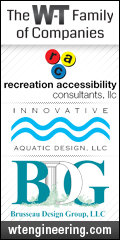
| IPRA Today - Conference Early Registration Deadline is December 1 | Editorial link | www.ilipra.org |
The Current Status of Mentoring and Diversity Among Illinois Park and Recreation Agencies
The parks and recreation field is regularly tasked with providing a diverse array of programming opportunities for their constituency. This diversity extends beyond recreational programming and impacts the staff composition of organizations. A recent survey of IPRA member organizations was conducted to identify key mentoring and diversity efforts taking place throughout the state. This article provides a snapshot of staff and programming inclusiveness as indicated by the responding agencies. Several areas of opportunities to enhance diversity and mentoring opportunities within agencies were identified for further discussion. Findings in this report are organized into three sections: Mentoring, Demographics, and Opportunities. Mentoring Respondents were initially asked to define the term mentorship. There did not appear to be a universal definition of this term or how it was practiced. Commonly stated words or phrases associated with mentorship included: professional, providing knowledge, and guiding development. Recreation agencies may find it beneficial to actively discuss what mentorship means to them professionally, personally and for their agency. Such discussions can guide the agency’s hiring practices and trainings. This may also contribute to establishing an inclusive environment through engaging in more efficient strategic planning and training. These discussions at the agency level as well as statewide forums may also contribute to establishing consistent mentoring practices across Illinois parks and recreation agencies. As a start, IPRA recently launched the Pro-Connect mentorship program aimed at providing a unique and multi-tiered approach to mentoring. This program is designed to group multiple levels of professionals together (early, mid-level, and seasoned/retired professionals) in a mentoring team. Each team member can then benefit from the shared knowledge of the professionals comprising each mentoring team, which then could be used to promote their organization’s goals. Demographics According to the 2012 Census, women accounted for 50.9% of Illinois’ population. Seventy-eight percent (77.8%) of the population was White, 16.3% was Hispanic/Latino, and 14.8% was Black. Individuals identified as Asian accounted for five percent of the state, and American Indian and Alaska Natives accounted for less than one percent (0.6%). This study showed a majority (86%) of Illinois parks and recreation staff members identified as White while only 14% of staff members indicated a race other than White. This demographic does suggest a discrepancy between the population of non-White Illinois residents (22%) and those employed within the field of parks and recreation in this state. The difference was greater at the levels of Board of Directors/Administrative Manager (8.6%) and Supervisory/Entry-Level Manager (6.8%). Across all levels, women comprised 49.4% of responding agencies’ staff. However, at the level of Board of Directors/Administrative Manager, women occupied 32.3% of the positions indicated. Thus, we see a divide between the demographics of the state of Illinois and parks and recreation agencies staff composition, which suggest an unequal representation of the populace employed in parks and recreation. Opportunities The report finds three major areas of opportunities: • Development of Systemic Mentoring A comprehensive mentoring plan prepares individuals to fulfill their current duties as well as preparation for future administrative positions. Implementing such practices systemically benefits the entire recreation profession because current practices suggest that training might not be as focused and efficient as it could be. Pro-Connect is a good start to begin this mentorship discussion on a statewide level, but the discussion must also occur within each organization. • Comprehensive Cultural Competency Training Providing continued diversity training for full-time and part-time staff is important for establishing a welcome and inclusive organizational environment. Cultural competency training not only communicates terminology and laws, but also helps staff develop an appreciation of the similarities/differences among individuals. This will help to ensure all constituents visiting our recreation facilities feel welcomed and are encouraged to return in the future. • Recruitment of Minority Recreation Majors A systematic effort should be made to actively recruit students, particularly women and individuals of color, into undergraduate recreation programs. For instance, park and recreation agencies may consider conducting seminars for high school students or actively participate in area high school career fairs. This type of engagement with high school and college populations can highlight the wide range of career opportunities available within the recreation field. Limitations/Conclusion The report analyses did have some limitations. Specifically, a total of 238 recreation agencies were contacted to participate in the study with 54 submitted responses creating a response rate of 22.7%. The response rate is within the acceptable parameters for an online data collection method, yet findings from this project are not generalizable to the entire State of Illinois due to the number of responses. In conclusion, we discussed the current status of mentorship and staff demographics among Illinois parks and recreation agencies. Three key opportunities were noted including establishing systemic mentoring programs, cultural competency trainings, and the recruitment of minority recreation majors. Demographics nationwide are changing and the agencies are urged to change as well to stay relevant. The utilization of this snapshot analysis can help agencies to be better prepared to serve the growing and changing needs of their community. Submitted by: Augustus Hallmon University of Illinois at Urbana-Champaign Department of Recreation, Sports, and Tourism Graduate Student Office of Recreation and Park Resources Graduate Assistant hallmon@illinois.edu |
 |
| 536 East Avenue, LaGrange, IL 60525 | Phone: 708-588-2280 | Fax : 708-354-0535 |
